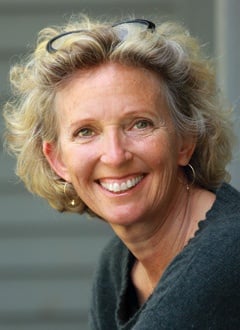
Motivation is as much a process as it is a feeling. - Susan Engel
You don’t need to be a psychologist to know that when children are motivated, they can overcome almost any obstacle, and that when they are not, even the brightest kids eventually flounder in one way or another. Most teachers see it every day in their classrooms. A kid who is eager to do well makes great strides. The one who could care less, or seems too tired to be bothered, falls behind.
But doing well can mean many different things to a child (and a teacher). It can entail winning, improving, executing a plan, finishing a task, or fulfilling a personal goal. It’s only in recent years that psychologists have begun to tease apart the big glob we casually think of as motivation.
Research suggests that at an early age, children vary in their basic amount of drive (Plomin et al. 1993). One child seems to have steam for every kind of challenge and task—the kid who cleans off the tables with gusto, asks for the hardest book to read, and attempts the most ambitious collage. Some children, however, are motivated only for certain things: they give their all on the soccer field but seem virtually paralyzed during the academic part of the day. Or a child might dive into anything related to books and writing, but become constrained and cautious when doing math. Then there are the kids who don’t seem motivated for anything. They don’t try at math or reading. They don’t raise their hands during group discussions. They never volunteer for special tasks. They never hustle. And yet, if you asked most teachers to line up their students from most motivated to least, they wouldn’t be able to do it. Part of the reason is because children are so uneven in this regard, highly motivated for one thing but not for another. But that’s not the only reason it’s hard to compare children when it comes to motivation. The other reason is that, although motivation is in some ways a drive, like appetite, it is an extremely complex drive, shaped by several forces.
…
Scientists have learned that motivation is as much a thought process as it is a feeling. What a child believes about trying hard matters as much as how much getup-and-go he has or how much he wants to do well. Studies have shown that these two orientations have significant implications for children’s approach to schoolwork. For instance, in the classic demonstration, children who seek mastery will choose a harder task, knowing that though
they may not succeed, it will push them to get better. Children who seek success, on the other hand, tend to choose an easier task, drawn to the prospect of winning, whatever winning might mean in a given setting. These differences in motivation seem to rest on two very different ideas about accomplishments. Children who seek mastery tend to believe that people get better at things a little at a time; progress is, in their minds, incremental. Children who seek success, on the other hand, have an implicit belief that a person is either good at something or not. What’s the point in trying, if you know you have no basic talent in that endeavor?
But what leads a child to favor one of these beliefs over another? Needless to say, the answer is not completely straightforward. Most teachers know that if they reinforce children’s good behavior, with even the smallest rewards, and consistently do not reinforce bad behavior, they can shape many aspects of a child’s performance. By smiling or putting
a gold star next to their name each time they raise their hand to speak, and ignoring them each time they simply call out, you can condition most kids to behave in certain ways. A
system of rewards and punishments, based on a behaviorist model, works quite well at helping teachers mold certain aspects of what children do in school. A gold-star plan might
get results. But what kind of results?
To get at the heart of the complexities behind motivation and engagement, educators must dip their toes into the world of child developmental psychology. There will never be a single answer for how to reach every student, but in building an understanding of the ways in which children make sense of themselves and the world around them, we can begin to find better ways to approach our students to help them grow and do well in their own way.
…
Learn more about The Children You Teach at Heinemann.com.

Susan Engel is a Senior Lecturer in Psychology and Founding Director of the Program in Teaching at Williams College. She currently serves as the Williams College Gaudino Scholar, a position that creates and promotes opportunities for students to stretch beyond what they are familiar with. She has taught all ages from three year olds through college. Her research interests include the development of curiosity, children’s narratives, play, and more generally, teaching and learning. Her current research looks at the development of children’s ideas. Her scholarly work has appeared in journals such as Cognitive Development, Harvard Educational Review, and the American Education Research Journal.
She is the author of seven previous books: The Stories Children Tell: Making Sense of the Narratives of Childhood, Context is Everything: The Nature of Memory, Real Kids: Making Sense in Everyday Life, Red Flags or Red Herrings: Predicting Who Your Child Will Become, The Hungry Mind: The Origins of Curiosity in Childhood, The End of the Rainbow: How Educating for Happiness (Not Money) Would Transform Our Schools, and most recently, A School of Our Own: The Story of the First Student-Run High School, and a New Vision for American Education which she co-wrote with her son Sam. Her writing on education has appeared in The New York Times, The Nation, The Atlantic Monthly, Salon, The Huffington Post, and The Boston Globe.
Susan is one of the founders of an experimental school in New York State, where she served as educational advisor for eighteen years. She lives in New Marlborough, Massachusetts with her husband Tom Levin. They have three sons, Jake, Will, and Sam.


